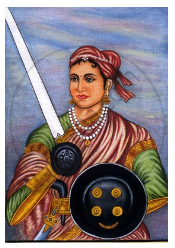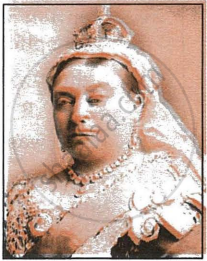Advertisements
Advertisements
प्रश्न
The Great Outbreak of 1857 brought about important changes in the character of Indian administration and the future development of the country In this context, discuss:
- The changes introduced in the administrative set-up of the British territories in India.
- The changes in the Army.
- The changes in the relationship with the Princely States.
उत्तर
- The war ended the East India Company's rule in India. The Act of 1858 transferred the control of India from the Company to the British Crown. The Board of Control and Court of Directors were abolished, and their powers were given to the Secretary of State. The Secretary of State, with the help of a 15-member Indian Council, was responsible for governing India and was paid from India's revenues. Civil service appointments were now to be made through open competition. Lastly, the Governor-General was given the additional title of Viceroy, symbolising his new role as the Crown's representative in India, especially in dealings with Indian princes and Nawabs.
- After 1858, the Indian army was reorganised to prevent another uprising:
- The number of European troops in India was increased to 65,000, while the Indian troops were reduced to 140,000, a ratio maintained until the First World War.
- European troops were stationed in key geographical and military positions.
- Indians were excluded from officer positions, a policy that was strictly enforced.
- To prevent Indian soldiers from revolting again, sophisticated weapons and ammunition were never given to them, and most Indian artillery units were disbanded, except for a few mountain units.
- Recruitment to the army was based on caste, region, and religion, creating divisions.
- Caste and community divisions were introduced into most regiments to discourage nationalism.
- Newspapers, journals, and nationalist publications were kept away from soldiers to isolate them from the rest of the population.
- Queen Victoria declared in her Proclamation of 1858 that the British government would not annex the Indian states. Secondly, all the treaties that the princess had concluded with the company would be honoured. Thirdly, their rights of adoption and succession were to be recognised. At the same time, the British government took all possible steps to render Indian states militarily weak by limiting their number of troops.
APPEARS IN
संबंधित प्रश्न
Fill in the blank:
The Revolt ended the rule of the _________.
This is the picture of the queen who led the Revolt in Central India.

What was the major outcome of the Revolt of 1857?
Give a reason why:
State of Awadh was annexed by the British.
The Revolt of 1857 was the beginning of the independence struggle against the colonial rule of the British. With reference to the consequences of the Revolt, answer the following:
Mention any four changes made in the army after the Revolt.
| The Indian Rebellion of 1857 was a major uprising against the rule of the British East India Company, which functioned as a sovereign power on behalf of the British Crown. With reference to this, answer the following question: |
How did the failure of this Revolt impact the Mughals and the Peshwas?
Which of the following was the result of the Great Uprising of 1857?
Under the Government of India Act 1858, who gave up the direct administration of India?
State any two consequences of the disbanding of the armies of the annexed States by the British.
What impact did the Uprising of 1857 have on the Peshwaship?
Study the picture and answer the following questions:

- Identify the person in the picture. Name the proclamation made by her in 1858.
- Where and by whom was this proclamation made public?
- What assurance did this proclamation give to the Indian people regarding
- religious freedom and
- appointment to public offices?
